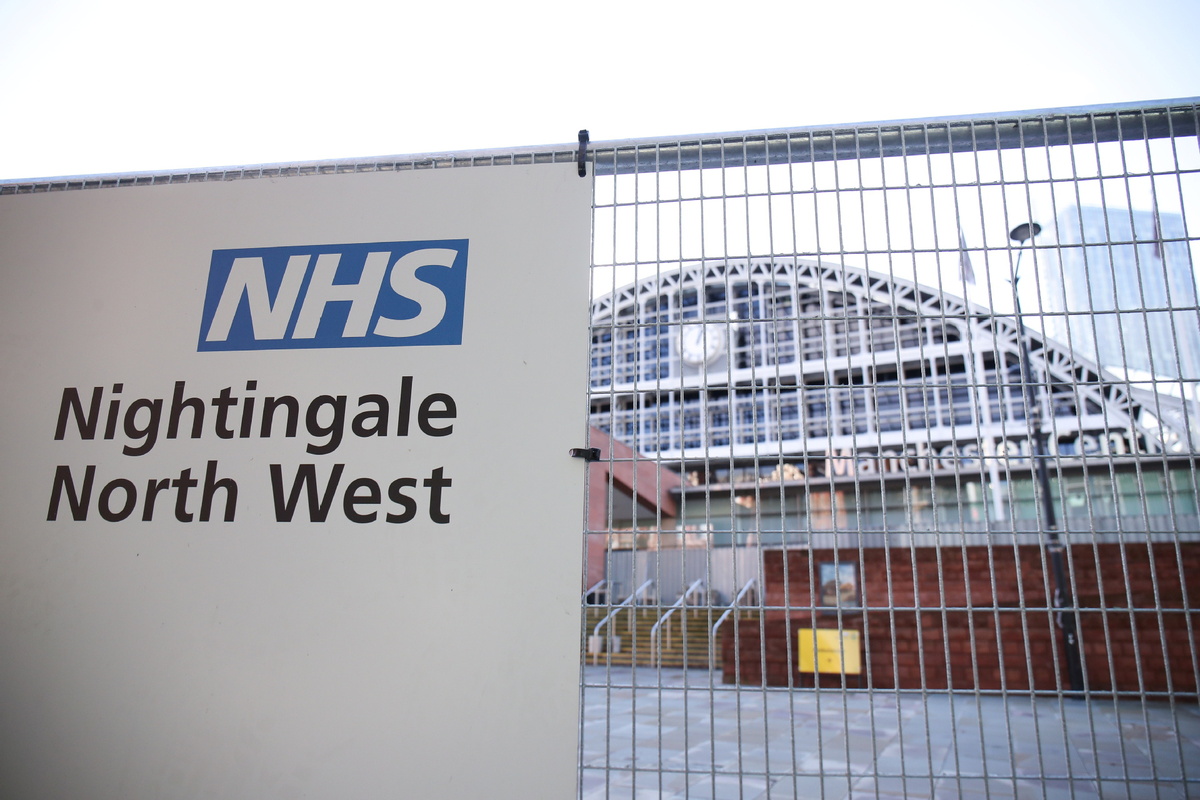Emergency COVID-19 hospitals in England to be closed
By JULIAN SHEA in London | China Daily Global | Updated: 2021-03-10 10:27

Temporary Nightingale Hospitals opened up across England a year ago at the start of the novel coronavirus pandemic, to cope with the anticipated extra pressure on the National Health Service, are to close from next month, it has been announced.
Many of the facilities were set up in venues including conference centers and exhibition halls, some with capacity for thousands of patients, but they experienced wildly differing levels of use.
The most high-profile venue, at the ExCeL exhibition center in East London, treated just 54 patients in the first wave, and a 500-bed venue at the Harrogate convention center in Yorkshire will be used as a testing center until it is shut, having failed to treat a single patient.
The Independent news website reported that facilities in Birmingham, Bristol, Harrogate and Manchester will shut permanently. The one in Exeter will be used as a testing center while sites in London and Sunderland will become vaccination centers.
Earlier this year, the Health Service Journal reported government-published figures that put the total cost of the temporary hospitals by the end of the 2022 financial year, including the costs of being set up and decommissioned, at around 532 million pounds ($738 million).
Birmingham, at just over 66 million pounds, was reportedly the most expensive hospital to create, while the London Nightingale cost more than 57 million pounds.
In future, any services that would have been provided by the Nightingale hospitals will be taken care of by regular NHS facilities.
The ExCeL arena site was also hampered by struggling to recruit medical staff, and in a paper published in medical journal Intensive Care Medicine last month, specialists admitted it had not had the necessary medical expertise to treat patients, with projections having been based on out-dated models.
"Subsequent clinical experience highlights that the clinical syndrome of COVID-19 and the spectrum and duration of multiorgan support requires comprehensive critical care capacity," the paper said. "Future planning should account for this."
An NHS spokesperson defended the contribution of the hospital program in helping manage the pandemic, despite the cost and low levels of use, calling them "the ultimate insurance policy in case existing hospital capacity was overwhelmed."
Health Secretary Matt Hancock said that being able to stand them down was an "important moment in our national recovery", and that they had played a "critical role".
"Built in just a matter of days, they gave us the confidence that the NHS would fulfill its timeless promise to always be there for you, to care for you and your family," he added.






















